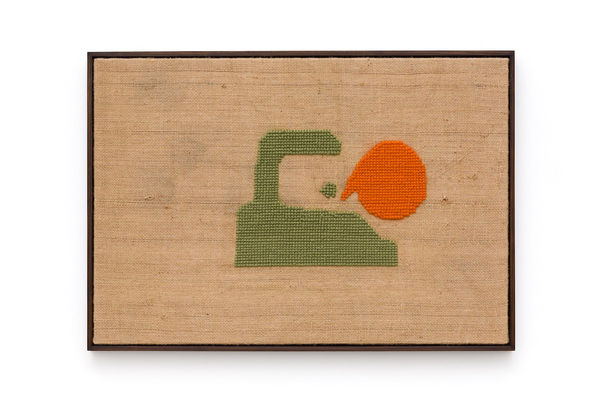Neither., curated by Fernanda Brenner Group Show
Adriano Costa, Sonia Gomes, Lucas Arruda, Luiz Roque, Patricia Leite, Paloma Bosquê, Mariana Castillo Deball, Nina Canell, Kasper Bosmans, Fernando Marques Penteado, Matthew Lutz-Kinoy, Michael Dean, Erika Verzutti, Otobong Nkanga, Joëlle Tuerlinckx, Francesco João, Hamza Halloubi, Dan Coopey, Dominique Gonzalez-Foerster, Manuel Raeder, Christina Mackie, Rodrigo Hernández, Djordje Ozbolt, Meriç Algün Ringborg, Rosemarie Trockel, Paul Sietsema, Cibelle Cavalli Bastos, Robert Janitz, Giulio Delvè, Jason Dodge, Katinka Bock, Mauro Restiffe, Franz West, Nicolas Deshayes, Alexandre da Cunha and Christodoulos Panayiotou.
"If I had to create a god, I would lend him a ‘slow understanding’: a kind of drip-by-drip understanding of problems. People who understand quickly frighten me.”
Roland Barthes, translated by Rosalind Krauss
When contemplating an exhibition that launches the new venue of a Brazilian born gallery in Brussels, my fi rst thought was: what do I think of when I think of Belgium?
Searching for a concept for the exhibition, I remembered a conversation I had with my grandfather. My grandparents were avid explorers, in the 1980s they left Brazil and embarked on a world tour that covered four continents. Many years later, while talking about the experience, I asked my grandfather which place he liked most. Surprisingly his answer was: Brussels. He told me it was because they have French food in German portions.
While wandering about my grandfather’s anecdote and the Belgium he experienced in the 80s, the little I know about the countries’ fragmented history brought to mind the concept of neutrality. The term ‘neutral’ associated to state policy is disconcerting. To what extent is it possible to remain impartial in the name of stability? Lets instead think of the “neutral” as experiencing a state of nuance in the margins of language and thus culture.
In Roland Barthes’ seminar on the Neutral (1978) he describes his work methodology as follows: “To prepare for this course, I took the word ‘neutral’ for a series of walks along a certain number of readings, relying on the procedure of topic (…) I didn’t take ‘neutral’ for a walk in a grid of words, but a grid of readings, that is, a library’. It was not by chance that the library chosen by Barthes was in his countryside home in rural France, which, according to the author, was a time-place where the loss of methodological rigor was offset by the intensity and joy of free reading.
To suggest a refl ection on the idea of Neutral by transposing this concept to an art exhibition is, above all, a free exercise of looking for a different way to make oneself present in the struggles of our time. This is a time when taking sides is urgent – as it has always been – but the routes and methods to do so need revision. Barthes’ Neutral is neither a consensus, nor indifference, or taking sides. On the contrary, it is active. It is a way of ‘baffl ing’ the paradigm before it leads us to one side or the other. If there is meaning, there is paradigm, and Neutral is the desire to stay in the moment just before the crystallisation of any concept, idea or recognizable category. The Barthesian Neutral is nuanced; it is always searching for a third term that offers a new kind of awareness – removed from binary oppositions.
Within the exhibition space, Barthes’ Neutral takes form by freely replicating his predilection for fragmented writing, described as the result of a stubborn affection rather than a rigorous methodology. Every artwork in the exhibition holds the seed of this fl oating ‘neutral’ in itself. Some do not subscribe to any specifi c category, deliberately staying in the margins of language. Others echo the ‘fi gures’ or ‘twinklings’ quoted by Barthes as possible embodiments of the Neutral, as androgyny, sleep, displacement, drift, weariness or colourlessness.
What are the necessary elements to create an atmosphere a home or any active propositional space – the exhibition as a welcoming environment? The gallery space is shared by both the hosts and the guests and Barthes’ concept is like the fi rst chair placed in an empty house, in relation to it, each element negotiates their position accordingly. “I don’t construct the concept of Neutral, I display Neutrals,” Barthes states. It is not a defi nition he – or we – are after, but a gathering of instances.
This new space that now binds us rests between moving in and feeling at home, in a place within Brazil and Belgium, that is no longer a family home and is not yet a fully-functioning commercial gallery. By taking this conscious pause – respecting the distance and the journey – the show recognizes harmony and confl ict while taking the time for this gallery to become – once again – what it already is.
– Fernanda Brenner
-
 Joëlle Tuerlinckx, Salle-basine ‘gris neutral Kodak’. Original d’exposition ‘CONGE ANNUEL/JAARLIJKS VERLOF’, galeria Stella Lohaus, Antuérpia, Bélgica, 2010
Joëlle Tuerlinckx, Salle-basine ‘gris neutral Kodak’. Original d’exposition ‘CONGE ANNUEL/JAARLIJKS VERLOF’, galeria Stella Lohaus, Antuérpia, Bélgica, 2010 -
 Francesco João, Untitled, 2017
Francesco João, Untitled, 2017 -
 Hamza Halloubi, To Leave, 2011
Hamza Halloubi, To Leave, 2011 -
 Dan Coopey, Sem título (Xia / Sinai), 2017
Dan Coopey, Sem título (Xia / Sinai), 2017 -
 Matthew Lutz-Kinoy, Meeting the sun (torso schematic); Walking the Path Worn in the Grass; Nature without check (lower schematic), 2017
Matthew Lutz-Kinoy, Meeting the sun (torso schematic); Walking the Path Worn in the Grass; Nature without check (lower schematic), 2017 -
 Dominique Gonzalez-Foerster & Manuel Raeder, BLACK MOUNTAIN left arm, 2016
Dominique Gonzalez-Foerster & Manuel Raeder, BLACK MOUNTAIN left arm, 2016 -
 Christina Mackie, Rescue, 2017
Christina Mackie, Rescue, 2017 -
 Rodrigo Hernández, The Metaphor of the Spider (The Beating), 2012
Rodrigo Hernández, The Metaphor of the Spider (The Beating), 2012 -
 Djordje Ozbolt, The Third Eye, 2016
Djordje Ozbolt, The Third Eye, 2016 -
 Djordje Ozbolt, Full Moon, 2016
Djordje Ozbolt, Full Moon, 2016 -
 Meriç Algün Ringborg, Infinity and Eternity, 2013
Meriç Algün Ringborg, Infinity and Eternity, 2013 -
 Paloma Bosquê, Duas Pedras / Two Stones, 2017
Paloma Bosquê, Duas Pedras / Two Stones, 2017 -
 Djordje Ozbolt, Stranger in a strange land, 2015
Djordje Ozbolt, Stranger in a strange land, 2015 -
 Lucas Arruda, Untitled (from the Deserto-Modelo series), 2016
Lucas Arruda, Untitled (from the Deserto-Modelo series), 2016 -
 Luiz Roque, Ancestral, 2016
Luiz Roque, Ancestral, 2016 -
 Erika Verzutti, Abajur Carambola, 2009/2017
Erika Verzutti, Abajur Carambola, 2009/2017 -
 Mariana Castillo Deball, Nobody (No. 15), 2008
Mariana Castillo Deball, Nobody (No. 15), 2008 -
 Sonia Gomes, Sem título, 2017
Sonia Gomes, Sem título, 2017 -
 Kasper Bosmans, Legend: Specimen Days, 2016
Kasper Bosmans, Legend: Specimen Days, 2016 -
 Adriano Costa, DownToGreeeeeeceStudies/PacoRabanne, 2017
Adriano Costa, DownToGreeeeeeceStudies/PacoRabanne, 2017 -
 Adriano Costa, DownToGreeeeeeceStudies/PacoRabanne, 2017
Adriano Costa, DownToGreeeeeeceStudies/PacoRabanne, 2017 -
 Otobong Nkanga, Things Fall Apart, 2010
Otobong Nkanga, Things Fall Apart, 2010 -
 Rodrigo Hernández, Pierced cat (Gato furado), 2012
Rodrigo Hernández, Pierced cat (Gato furado), 2012 -
 Rodrigo Hernández, Pedro, 2012
Rodrigo Hernández, Pedro, 2012 -
 Rosemarie Trockel, Sem título, 2016
Rosemarie Trockel, Sem título, 2016 -
 Joëlle Tuerlinckx, Titre-salle ‘gris neutral Kodak’, 2005-2012
Joëlle Tuerlinckx, Titre-salle ‘gris neutral Kodak’, 2005-2012 -
 Patricia Leite, Laranjeira, 2017
Patricia Leite, Laranjeira, 2017 -
 Paul Sietsema, Circle painting, 2016
Paul Sietsema, Circle painting, 2016 -
![Cibelle Cavalli Bastos, ÆVTAR/PER-FORM II [{“CIBELLE”(CAVALLI}BASTOS)] @cibellecibelle , 2017](data:image/gif;base64,R0lGODlhAQABAIAAAAAAAP///yH5BAEAAAAALAAAAAABAAEAAAIBRAA7) Cibelle Cavalli Bastos, ÆVTAR/PER-FORM II [{“CIBELLE”(CAVALLI}BASTOS)] @cibellecibelle , 2017
Cibelle Cavalli Bastos, ÆVTAR/PER-FORM II [{“CIBELLE”(CAVALLI}BASTOS)] @cibellecibelle , 2017 -
 Robert Janitz, This was the signal for their coup, 2016
Robert Janitz, This was the signal for their coup, 2016 -
 Fernando Marques Penteado, Proteger Sean, 2014
Fernando Marques Penteado, Proteger Sean, 2014 -
 Giulio Delvè, Camouflage, 2015
Giulio Delvè, Camouflage, 2015 -
 Jason Dodge, Shoes that have been made for someone with three legs, 2015
Jason Dodge, Shoes that have been made for someone with three legs, 2015 -
 Katinka Bock, Winterlandschaft mit Hut, 2011
Katinka Bock, Winterlandschaft mit Hut, 2011 -
 Mauro Restiffe, O Aquário, 2000
Mauro Restiffe, O Aquário, 2000 -
 Michael Dean, Analogue Series (muscle), Analogue Series (muscle), 2014
Michael Dean, Analogue Series (muscle), Analogue Series (muscle), 2014 -
 Patricia Leite, Nossa Senhora dos Prazeres, 2016
Patricia Leite, Nossa Senhora dos Prazeres, 2016 -
 Franz West, Sinnlos, 2008
Franz West, Sinnlos, 2008 -
 Nina Canell, Brief Syllable (Blue), 2017
Nina Canell, Brief Syllable (Blue), 2017 -
 Nicolas Deshayes, Darling Gutter, 2015
Nicolas Deshayes, Darling Gutter, 2015 -
 Adriano Costa, SpiderChair, 2016
Adriano Costa, SpiderChair, 2016 -
 Alexandre da Cunha, Fair Trade, 2015
Alexandre da Cunha, Fair Trade, 2015 -
 Christodoulos Panayiotou, Sem título, 2015
Christodoulos Panayiotou, Sem título, 2015
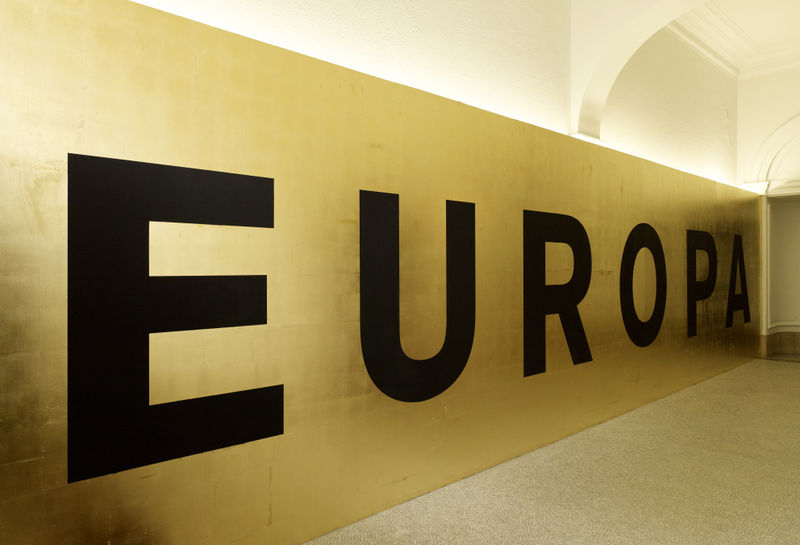











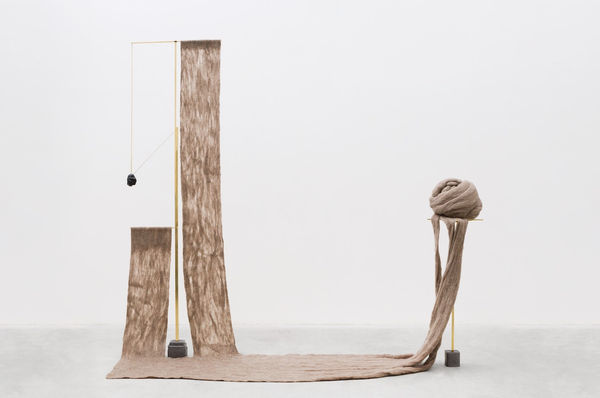



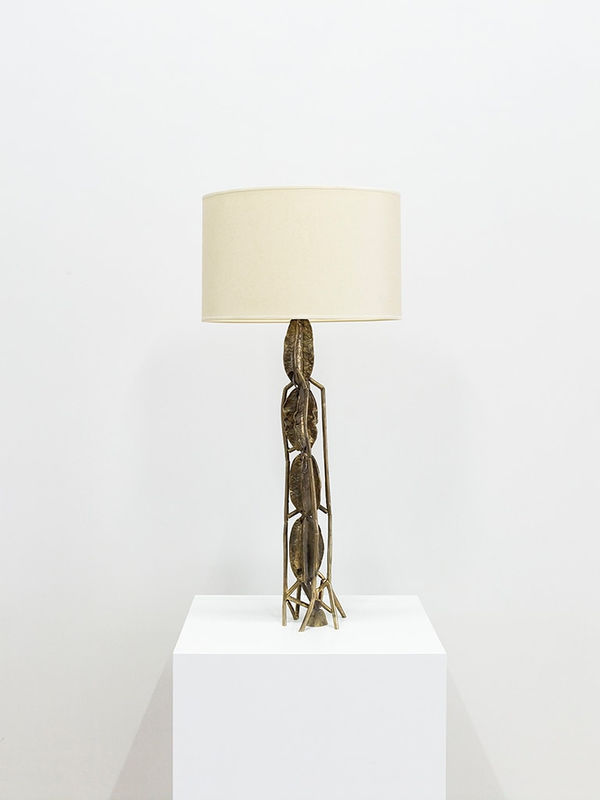





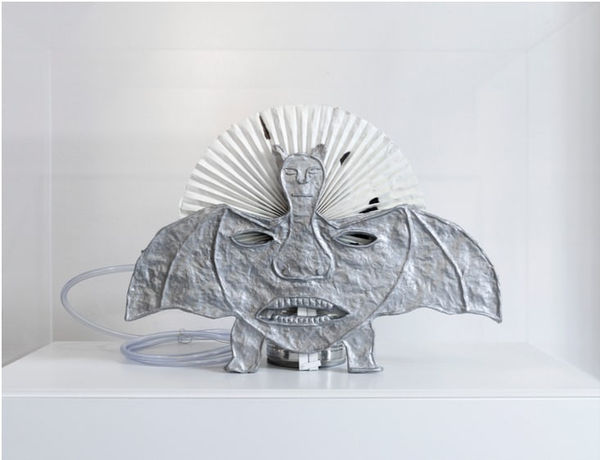





![Cibelle Cavalli Bastos, ÆVTAR/PER-FORM II [{“CIBELLE”(CAVALLI}BASTOS)] @cibellecibelle , 2017](https://static-assets.artlogic.net/w_600,c_limit,f_auto,fl_lossy,q_auto,dpr_auto/artlogicstorage/mendeswooddm/images/view/4c7845a92a612b3b89fe2ac21d611173p/mendeswooddm-cibelle-cavalli-bastos-vtar-per-form-ii-cibelle-cavalli-bastos-cibellecibelle-2017.png)












